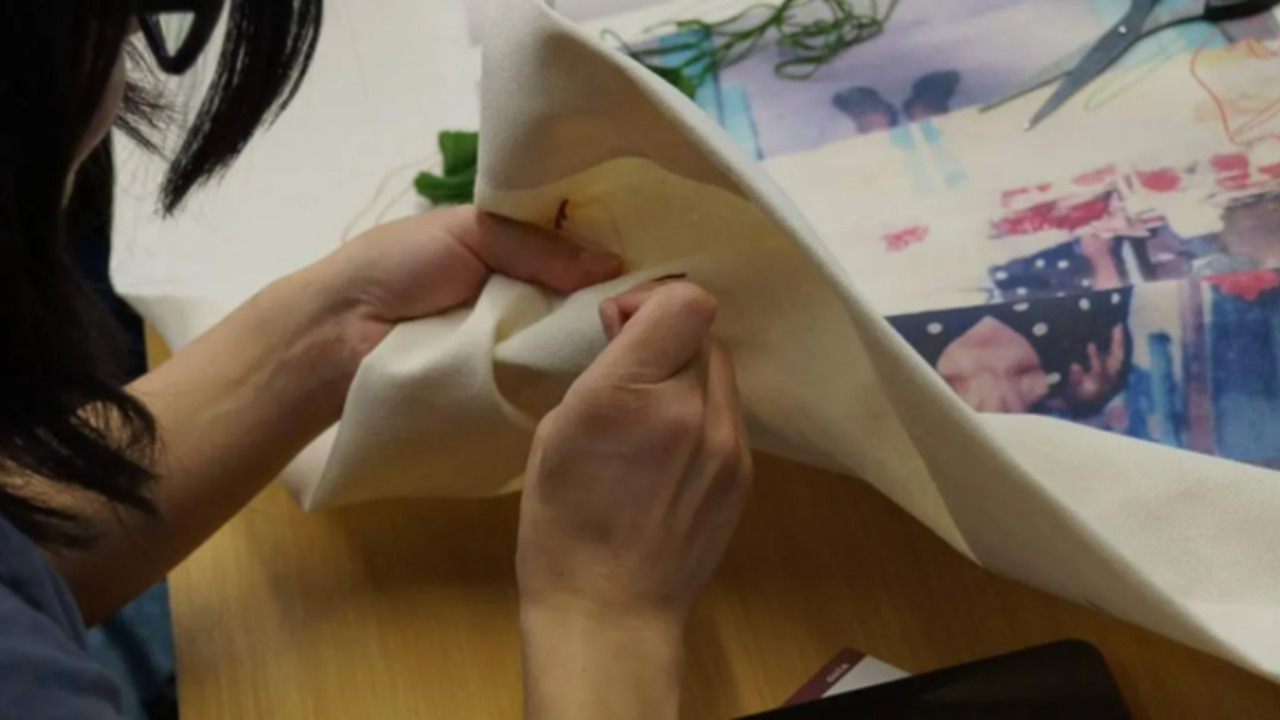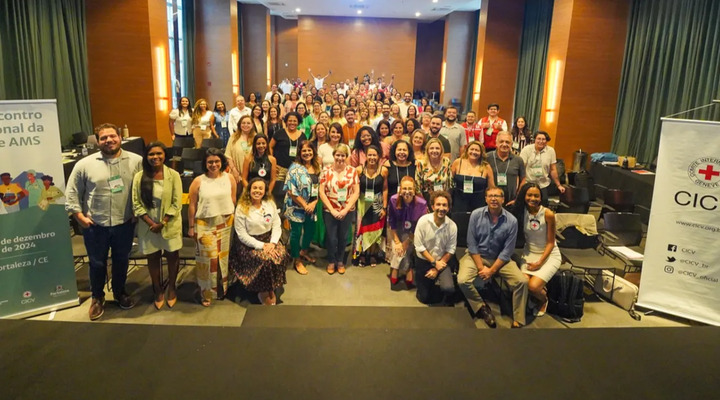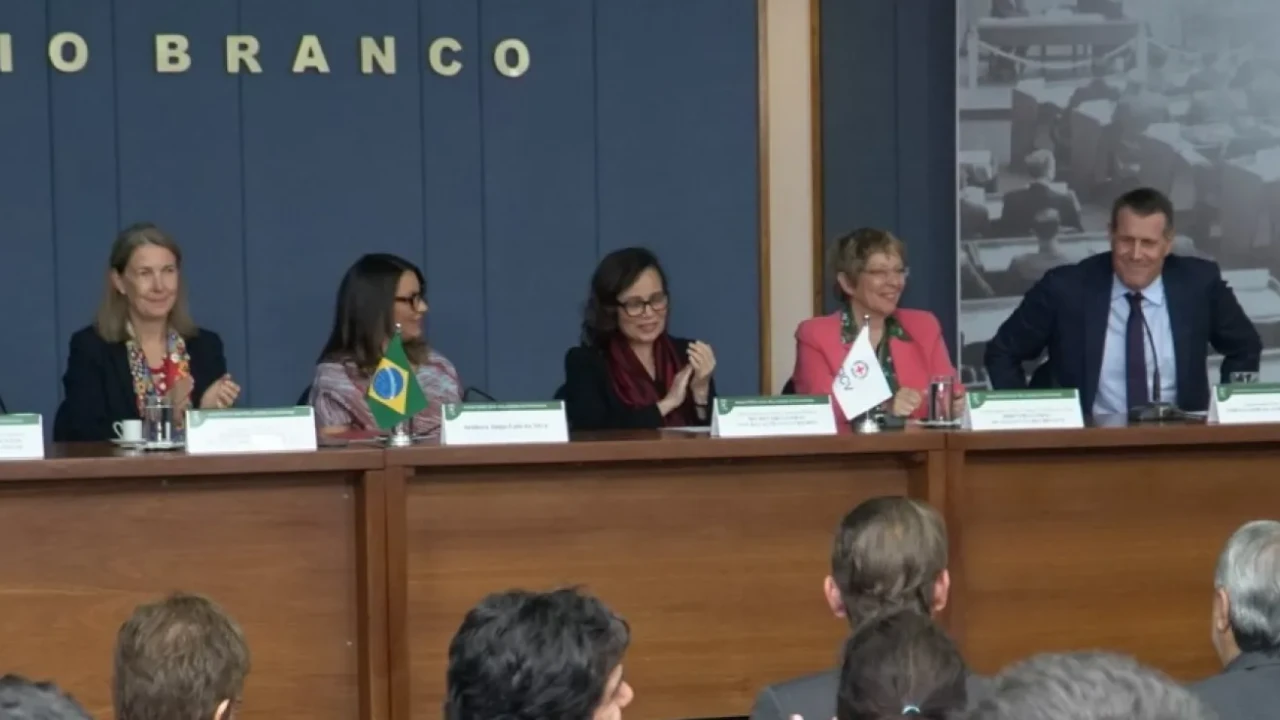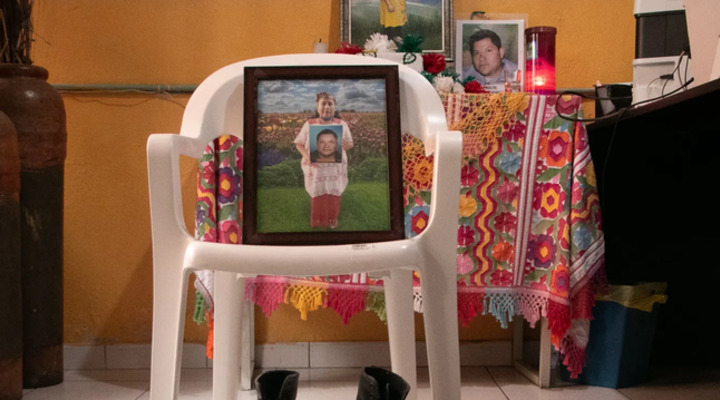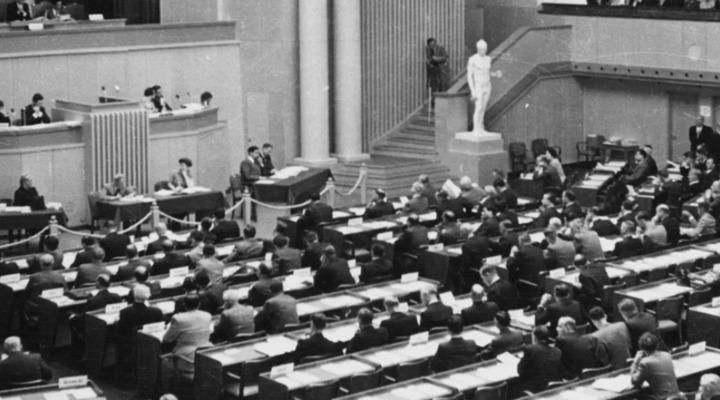Mexico: A regional exhibition honours the family members of missing people who died searching for their loved ones
The ICRC's touring exhibition Weaving Memory: The Legacy of Those Who Never Stopped Searching highlights the urgent need to continue searching for missing people until what happened to them and where they are is revealed. At the same time, it emphasizes that governments have a responsibility to give families answers.
9 August 2024, Mexico City – Thousands of people in Mexico and Central America are searching for a missing loved one, and many have died without finding them, taking the anguish of their absence and the dream of seeing them again to their grave.
At the inauguration in Mexico of the touring exhibition Weaving Memory: The Legacy of Those Who Never Stopped Searching, the International Committee of the Red Cross (ICRC) pointed out that regardless of the time elapsed or the circumstances of the disappearance, governments are obliged to conduct an effective and coordinated search to provide answers to the families and alleviate their suffering.
"No person should have to die not knowing what happened to their missing loved one. The exhibition pays tribute to those who left this world with the pain of uncertainty," said Olivier Dubois, head of the ICRC's regional delegation for Mexico and Central America.
"This exhibition invites us to reflect on the longing to find them, and it highlights the importance of the community in terms of the recognition, affection, solidarity and support it provides. These lives spent searching leave a legacy to those who come after: families who decide to continue what their mothers, fathers or friends started, who inherit from them the search, the activism and the pain. Perseverance becomes part of their identity, passed down from generation to generation," said Dubois.
For the ICRC, the death of every person denied their right to know is a motivation to redouble efforts to search for and locate missing people, and a reminder that the authorities are responsible for this search, which must be ongoing.
The exhibition seeks to draw attention to the painful reality of missing people's families. It also honours the legacy of those who in their lifetime dedicated themselves to the search; their efforts today give strength to their families and friends, who tirelessly continue their work.
Communities often report that a family member has died still searching, whether due to old age, untreated illness or violence. Jannet Carmona, coordinator of the ICRC's missing people's programme in Mexico, noted that the impact on the physical and psychosocial health of families is profound and requires a comprehensive response. "In addition to their right to participate in search actions, families also have the right to access immediate relief measures, assistance and care, including medical and psychological services, as well as security when necessary," she said.
"Authorities must launch searches immediately and keep up their efforts to increase the likelihood of finding the people and to alleviate families' suffering. From the time of the disappearance and throughout the process, search actions must continue until the missing person's whereabouts, and what happened to them, is known. Governments must ensure appropriate procedures are in place and facilitate the continuation of the search in cases where the family member searching has died," said Carmona.
Memory and legacy
Weaving Memory: The Legacy of Those Who Never Stopped Searching arose from the concerns of families who have lost members of their communities during the search. The project aims to keep alive the history of their missing loved ones and perpetuate the lessons of those who never stopped searching.
The exhibition pays tribute to the lives of Lupita Rodríguez, María Demetria Martínez, Paula Martin Yo'ol, Consuelo Dorantes, Gustavo Banegas, Marcelina del Carmen and Teodolinda Morán, and to all the people who have died in Mexico and Central America not knowing where their loved ones are or what happened to them.
Their stories were reconstructed thanks to the testimonies of their families and members of their communities. The portraits, selected by relatives who continue the search, were printed on blankets and embroidered collectively by mothers, sons, daughters and friends. The embroidered items incorporate symbolic elements for each family; each stitch represents an act of union, hope and memory construction. The work expresses the families' support for each other.
The exhibition was first presented in Honduras in July. It will be shown at Casa Rafael Galván of the Universidad Autónoma Metropolitana (UAM) in Mexico City from 9 August to 10 September 2024, accompanied by a programme of activities for the public, with workshops, talks and embroidery sessions. The relatives of missing people and ICRC experts and specialists will take part in these to present a range of perspectives on the subject.
This initiative is part of the ICRC's humanitarian action to support the families of missing people, draw attention to their needs and strengthen the capacity of governments to give answers to those searching for a loved one. It was made possible by the families who generously shared their stories and who have been closely involved in the project's various development stages. It was created in partnership with Aura, a Mexican consultancy firm specializing in art, culture and creative industries.
For more information and press enquiries, please contact:
ICRC Mexico and Central America: Ana Langner Leyva, public communications officer: olangnerleyva@icrc.org, tel. +52 553 717 6427
